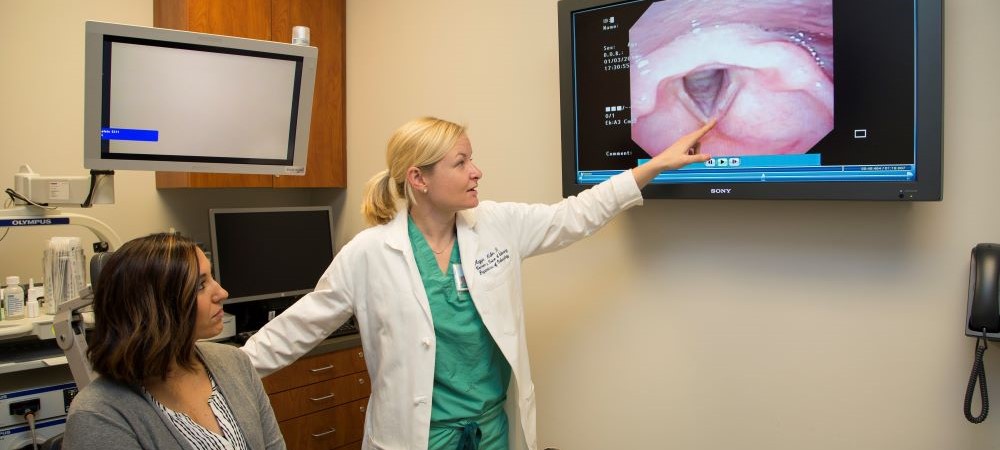Discovering the Field of Otolaryngology: What to Expect When You Seek Advice From an ENT
Otolaryngology, generally described as ENT, incorporates the medical diagnosis and treatment of nose, ear, and throat disorders. For those experiencing associated problems, speaking with an ENT professional can provide clarity and relief. Understanding what to anticipate during such consultations is vital for reliable communication and treatment. This review will lay out vital aspects of the ENT experience, consisting of typical reasons for sees and the procedures associated with medical diagnosis and treatment.

Understanding Otolaryngology: An Overview
Otolaryngology, frequently referred to as ENT (Ear, throat, and nose) medicine, is a specialized branch of medicine that concentrates on the medical diagnosis and therapy of problems impacting these essential locations of the body. This area encompasses a vast array of problems, including those pertaining to hearing, equilibrium, respiratory system feature, and speech. Otolaryngologists are educated to manage both surgical and medical treatments, using advanced techniques and technologies. Their proficiency expands past standard ailments, attending to problems such as allergic reactions, sinus infections, and hearing loss. Additionally, they play an important duty in the monitoring of head and neck cancers cells, giving comprehensive treatment tailored to specific patient demands. Overall, otolaryngology stays crucial for maintaining health and lifestyle in damaged people.
Common Reasons to See an ENT Specialist
Numerous individuals look for the expertise of an ENT specialist for a selection of factors, reflecting the varied nature of problems that affect the throat, nose, and ear. Usual problems include chronic sinusitis, which usually leads to relentless nasal congestion and facial pain. Allergies and their associated signs, such as sneezing and itching, also motivate visits to these specialists (ENT surgery). Hearing loss, whether abrupt or progressive, is an additional considerable reason for assessment. Furthermore, people might seek analysis for throat conditions, including persistent hoarseness or ingesting difficulties. Rest apnea, identified by cut off breathing during rest, is often resolved by ENT specialists as well. Each of these problems highlights the significance of specialized treatment in handling intricate ENT-related health concerns
Planning for Your ENT Appointment
When preparing for an ENT visit, it is crucial to gather relevant details and take into consideration any type of details problems. Clients should assemble a comprehensive case history, consisting of previous ear, nose, or throat problems, surgical procedures, and existing medications. Recording symptoms-- such as duration, intensity, and regularity-- can give useful understandings for the ENT professional. Furthermore, people ought to prepare a checklist of inquiries they wish to ask, guaranteeing that all concerns are addressed throughout the check out. Bringing along any appropriate medical records or test outcomes can even more help the ENT in comprehending the patient's problem. Ultimately, clients must verify their visit information, including date, place, and time, to minimize any kind of final confusion. Proper preparation can improve the effectiveness of the consultation and lead to better results.
What to Anticipate Throughout the Assessment
As the consultation begins, the individual can expect to take part in a comprehensive discussion with the ENT specialist concerning their symptoms and clinical history. The specialist will ask about the period, frequency, and extent of signs and symptoms such as hearing loss, nasal congestion, or aching throat. In addition, the person's previous medical conditions, drugs, and any type of appropriate family members history will certainly be reviewed, assisting the expert in developing a full understanding of the individual's wellness. The ENT might also ask about way of life aspects, such as direct exposure to irritants or allergens. This open dialogue establishes a foundation for the consultation, guaranteeing that the individual's worries are attended to and setting the phase for any kind of needed analyses or referrals for therapy.
Diagnostic Examinations and Procedures in Otolaryngology
A series of analysis tests and treatments are crucial in otolaryngology to accurately review and identify conditions impacting the ear, throat, and nose. Usual tests consist of audiometry, which measures hearing function, and tympanometry, evaluating center ear pressure. Nasal endoscopy allows visualization of the nasal flows and sinuses, while laryngoscopy examines the throat and singing cables. Imaging strategies, such as CT scans and MRIs, provide comprehensive sights of head and neck structures. Allergy screening may also be carried his comment is here out to recognize triggers for sinus or respiratory problems. These diagnostic tools allow ENT experts to develop a thorough understanding of patients' problems, making sure customized and effective monitoring plans. Correct diagnosis is vital for effective treatment end results in otolaryngology.
Treatment Options Offered by ENT Specialists
ENT specialists use a variety of therapy options tailored to address particular conditions affecting the nose, throat, and ear. These therapies range from traditional methods, such as drug and lifestyle adjustments, to even more intrusive procedures. For instance, allergies may be taken care of with antihistamines or immunotherapy, while chronic sinusitis might need nasal corticosteroids or sinus surgical procedure. For hearing loss, ENT experts frequently recommend hearing aids or medical interventions like cochlear implants. In instances of throat disorders, options can consist of speech therapy or procedures to remove obstructions. Furthermore, they may provide support for managing sleep apnea, consisting of the in ear hearing aids use of CPAP gadgets or medical treatments. In general, the objective is to improve individuals' top quality of life with personalized treatment and efficient treatment techniques.
When to Look For Follow-Up Treatment With an ENT
Identifying when to look for follow-up care with an ENT specialist is vital for taking care of ongoing signs and symptoms or issues connected to ear, nose, and throat problems. Patients should take into consideration arranging a follow-up appointment if signs linger in spite of first treatment, such as chronic ear discomfort, nasal congestion, or throat pain. Modifications in hearing, equilibrium problems, or uncommon nasal discharge might additionally require more examination. In addition, if a person experiences side results from prescribed medicines or has actually undertaken a procedure, follow-up treatment is very important to monitor healing and attend to any type of problems. Prompt examinations can assure efficient monitoring of conditions, protect against possible problems, and give assurance relating to one's wellness. Looking for follow-up treatment advertises positive health and wellness management in otolaryngology.
Frequently Asked Concerns

What Credentials Should I Seek in an ENT Expert?
When seeking an ENT specialist, one need to search for board qualification, appropriate experience, and solid patient testimonials. Additionally, efficient communication abilities and a thoughtful method can considerably enhance the general treatment experience.
How Do I Choose the Right ENT for My Demands?
Picking the right ENT professional involves examining their qualifications, experience, and client evaluations (ENT surgery). It is necessary to contemplate their interaction design and approach to treatment, guaranteeing they align with the person's details health and wellness requirements and choices
Are There Any Type Of Risks Connected With ENT Procedures?
The risks linked with ENT procedures may consist of infection, blood loss, anesthetic complications, and potential damage to surrounding frameworks. People need to talk about these risks official source with their doctor to comprehend individual problems and guarantee notified choices.
Exactly How Can I Manage Stress And Anxiety Before My ENT Appointment?
To take care of stress and anxiety prior to an appointment, people can practice deep breathing workouts, picture favorable results, prepare concerns ahead of time, and seek support from good friends or family, cultivating a feeling of peace of mind and peace.
What Should I Do if I Experience Negative Effects From Therapy?
If adverse effects from therapy happen, the person must without delay report them to their medical care copyright. Modifications to treatment or added interventions may be essential to ensure safety and performance in handling their problem - ENT Clinic. As the examination begins, the person can expect to involve in an extensive conversation with the ENT expert about their symptoms and medical background. These diagnostic tools enable ENT professionals to develop a detailed understanding of people' conditions, making sure tailored and effective management plans. ENT professionals supply a range of treatment options customized to address details conditions affecting the throat, nose, and ear. When seeking an ENT expert, one need to look for board certification, appropriate experience, and solid patient evaluations. Selecting the ideal ENT professional includes reviewing their qualifications, experience, and patient reviews